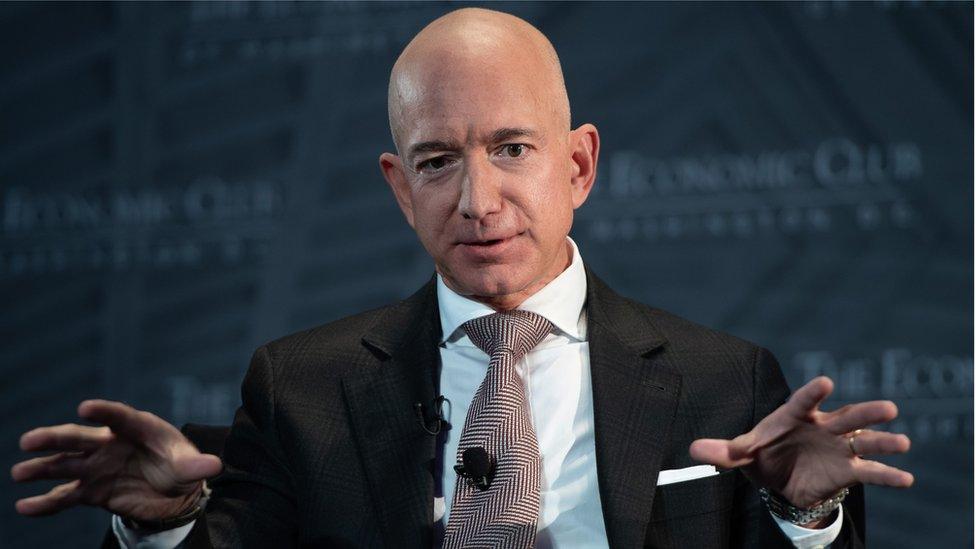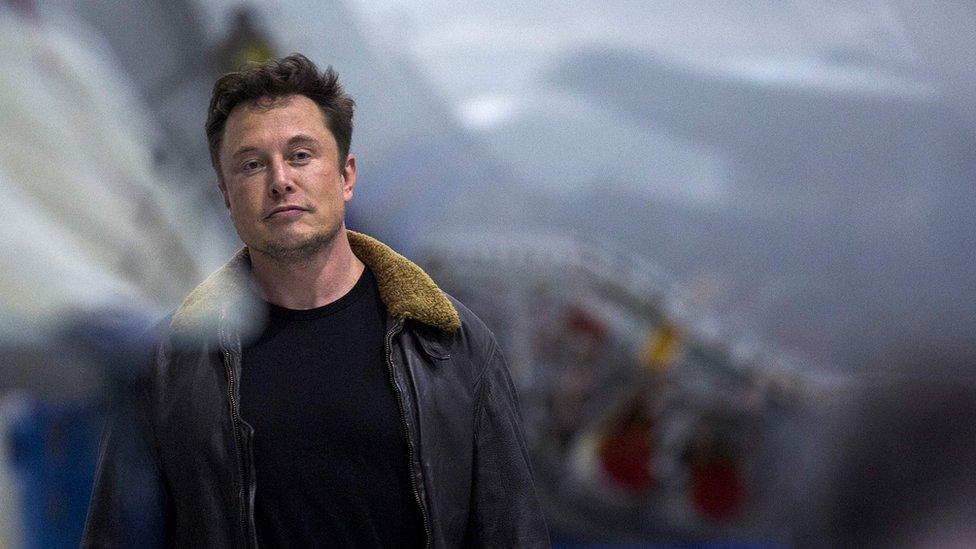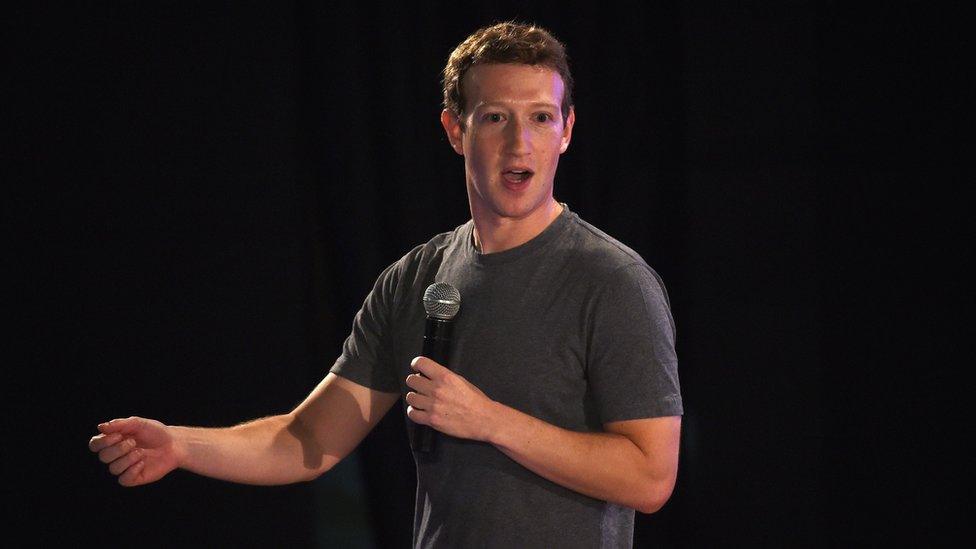The New Epochalists
- Published
Announcing the recent launch of his Day One Fund to support pre-school pupils and defeat homelessness, Jeff Bezos used a word not often deployed by global CEOs. "In addition to Amazon," he said, "my areas of focus so far have included investment in the future of our planet and…" - wait for it - "civilisation", external.
Civilisation is a word Bezos keeps coming back to. "Humans are now technologically advanced enough that we can create not only extraordinary wonders but also civilisation-scale problems", he wrote in a blog post this year. "We are likely to need more long-term thinking".
That blog post was about a remarkable clock that Bezos has built., external One hundred and fifty metres tall, costing $42m, powered by geothermal energy and housed inside a mountain in Texas, the clock is designed to keep the time for 10,000 years.
The world's richest man, whose fabled Day One thinking is so ingrained that Amazon's headquarters are in a Day One building, has a very different relationship with time from most corporate leaders. He is mortal of course, but he thinks in epochal terms, situating his daily actions and company growth as much within the grand sweep of human history as the quarterly reporting rotas of public companies.

The world's richest man, the founder of Amazon, Jeff Bezos, says he is focused on the future of civilisation
In this, he resembles other tech visionaries. Elon Musk of Tesla, with his investments in electric cars and space exploration, and gloomy - perhaps prophetic - warnings about the coming age of artificial intelligence, is another epochalist. No surprise, then, that he is a fan of the c-word.
In fact, not only is Musk a regular player of the computer game known as Civilisation, which is all about husbanding resources to build an epic human community, but that word peppers his public utterances. "We must preserve the light of consciousness," he tweeted in June,, external "by becoming a space-faring civilisation and extending life to other planets."
In a recent profile for the New Yorker, external, Mark Zuckerberg got in on the act, declaring his reverence for the Roman Emperor Augustus. "Through a really harsh approach," the Facebook CEO told the magazine, "he established two hundred years of world peace. What are the trade-offs in that? On the one hand, world peace is a long-term goal that people talk about today. Two hundred years feels unattainable."

Investor Elon Musk says we must extend life to other planets
By thinking not in days or decades but centuries, the New Epochalists channel their utopian instincts and find common ground with many non-Western and non-democratic leaders. The best example is China's Xi Jinping. At last October's Congress of the Communist Party, Xi talked about a "new era… that sees China moving centre stage and making greater contributions to mankind."
Chen Daoyin, an academic in Shanghai, told The Guardian that Xi was ushering in a third great epoch since the communists took power in 1949: first Mao, then Deng Xiaoping, and now Xi. The sentiment emanating from China is: you can have a bad 300 years, but you might then have a good 300 years. Maybe Xi is a Chinese Augustus.
We are, as I have pointed out before here, experiencing an epochal shift today. Many of the main elements of the post-1945 world order - from convergence toward democracy and free trade, to American leadership and the sanctity of the UN - are unstable.
It may be that, as Nicholas Wright argued recently, external in the journal Foreign Affairs, that the coming competition for global dominance will be between liberal democracy and digital authoritarianism. A sincere question for technology companies such as Facebook is: if this battle does transpire, which side are you on?

Facebook founder Mark Zuckerberg told the New Yorker: "If we're going to achieve what we want to, it's not just about building the best features. It's about building the best community."
Naturally, Zuckerberg and his senior colleagues want to think of themselves as a benefit and boon to democracy, but in creating filter bubbles which limit exposure to heterodox views, and inadvertently facilitating abuse of the platform by the likes of Russia, it's not actually clear which side of the divide they are on.
Democracy itself has virtues aplenty, but long-term thinking isn't one of them. Epochal cycles and electoral cycles have very little in common. The four-year cycle in America is pretty regular; but the five-year cycle in Britain has been radically sped up by the offer of referenda on Scottish independence and membership of the European Union - and the whim of prime ministers in search of a big majority, of course.
And there are profound questions for journalism too. The news cycle used to be to elections roughly what elections were to epochs - a kind of daily noise. But in the age of social media, the news cycle has sped up, almost infinitely.
Yet the most powerful people in today's world are thinking big, slow and long. People in my trade should learn from them. As news speeds up, maybe journalism should slow down.
If you're interested in issues such as these, you can follow me on Twitter, external or Facebook, external; and subscribe to The Media Show podcast, external from Radio 4.